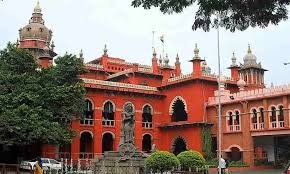In a significant move to uplift the residents of Kalvarayan Hills, the Madras High Court has directed the Tamil Nadu government to ensure adequate healthcare and education facilities for the area’s predominantly tribal population. The directive came as part of a suo motu Public Interest Litigation (PIL) initiated by the court to address the exploitation of the villagers by illicit liquor traders, which had tragically claimed 67 lives in the region. The court emphasized the need to provide basic amenities, including schools and healthcare, to address the long-standing neglect faced by these tribal communities.
The court’s order mandates the state government to submit a detailed report on the availability of educational institutions, the number of teachers, student enrolment, primary health centres, and medical staff within four weeks. This move seeks to address significant gaps in basic services that have left the people of Kalvarayan Hills at a disadvantage compared to other regions in the state. The judges expressed concern that the region, annexed into India only in 1976, has experienced delayed development, with voting rights granted only in 1996, further widening the developmental divide.
In addition to the educational and healthcare concerns, the court also addressed infrastructure issues. The Kallakurichi district collector requested 12 months to construct a vital road linking Vellimalai and Chinnathirupathi, two key areas in the hills. This road, expected to improve connectivity, is crucial for the region’s integration into the broader economic and social fabric of Tamil Nadu. It is an essential step towards addressing the infrastructural deficiencies that hinder development in the area.
The sustainability of the region’s growth hinges on these improvements. By ensuring access to basic services like education and healthcare, the state can empower the local population and foster long-term social and economic development. Furthermore, the introduction of infrastructure projects, such as roads and healthcare facilities, can mitigate the adverse effects of exploitation, enabling the tribal communities to thrive in a more inclusive environment. The court has also appointed Senior Advocate Tamilmani as amicus curiae to monitor the situation and report back on the prevailing conditions in the area, underscoring the importance of continuous oversight in the implementation of these reforms.


